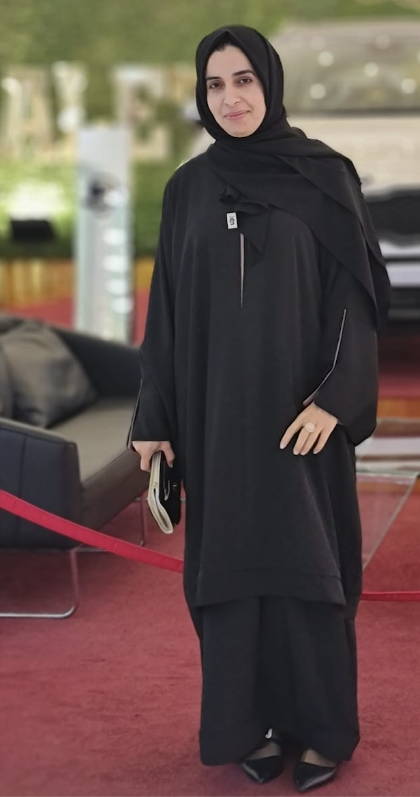Halima Al Maghrabi: A young leader defends her right to stand in municipal elections to represent her community
Date:

In the midst of a fragile political situation in Libya, where the simple tenets of governance are challenged by widespread insecurity, Halima Al Moghrabi—a young woman with a Masters’ degree in planning-- decided to become an active member in her local municipal council in the port city of Sidra.
"Most women would call this an ‘adventure,’” she says. “I defied the conservative traditions, gender norms and patriarchal socio-political system in my community, because I want to give voice to the needs of women in the municipal council, and to challenge the stereotypes around women’s roles in my community," she explained. "At age 25, I became the first young, elected woman on the Municipal Council in Sidra,"
In 2013, Halima decided to nominate herself as a candidate in the municipal election in Sidra City, a port about 23 km west of Ra's Lanuf in Libya, where Halima lives with her family.
At that time, she chose to run in the local elections after having realized how critical the needs were for citizens of Sidra and Ra's Lanuf to have access to quality services in health, education and infrastructure. Halima was supported by her father as she worked to secure the support from tribal elders and the youth.
Halima had to overcome several obstacles to win her position for the women’s seat on the Municipal Council, beginning with voting fraud. Her supporters discovered there had been a manipulation in the number of the votes that favored Halima’s rival candidate. With the support of her constituency, she registered a formal complaint with the local elections committee requesting they conduct a recount. After serious deliberations, the election committee conducted a recount and found that Halima had won, with 1300 votes.
Following the elections, Halima and other elected councilors (all men) in Sidra were unable to take the formal oath of office for the municipality, which is a legal requirement to start their work as municipal officers, as per Law No 59. This was due to grave security threats in Sidra in July 2014, after the launch of a military operation by an armed group.
Despite the security crisis, Halima insisted on taking her oath of office to be able to perform her tasks as the first woman municipal councilor. She appealed to the Minister of Local Governance to take her oath at the Ministry's office instead of the Municipal Hall.
This request was approved, and Halima was subsequently appointed by the Minister of Local Governance as a focal point to liaise between the Ministry and the community members in Sidra. She would be able to represent the needs of the people of Sidra and Ra's Lanuf to access quality services and at the same time communicate those demands to the relevant national ministries.
For almost four years, Halima fought to fulfil her responsibilities as a municipal councilor, resisting the pressure from certain members of the community who have allegedly called for her to quit her municipal work.
"The arrival of a woman municipal councilor in my community marked a turning point in the life of other women in Sidra. The pattern of men monopolizing group interactions and leadership was gone. I vow to serve both men and women equally to work towards a poverty-free, sustainable, and bright future for Libya," Halima declared.
Halima stepped up to serve her community during periods of intense challenge in recent years, when conflict and COVID-19 were ravaging Libya. Halima coordinated with a humanitarian relief organization in Libya to distribute in-kind assistance to community members most in need.
Halima is convinced that her efforts will bear fruit. If women persist in defending their rights despite being subjected to pressure, intimidation, and sexism, change will definitely come. When women move into the public sphere, and they work in their community – either through municipal work or in community services—change is inevitable.